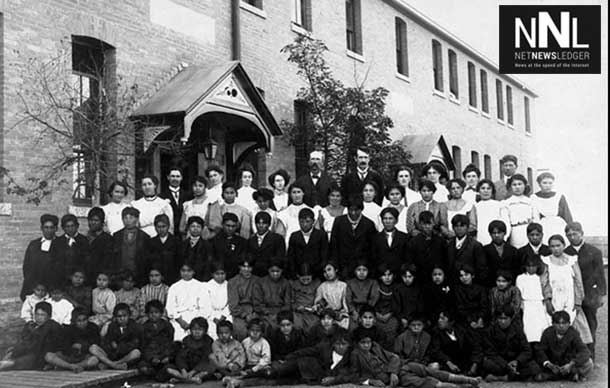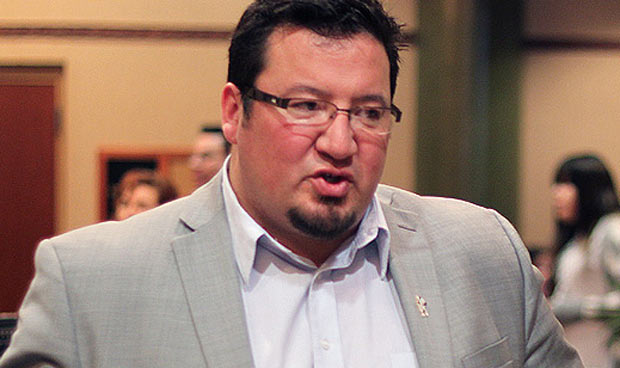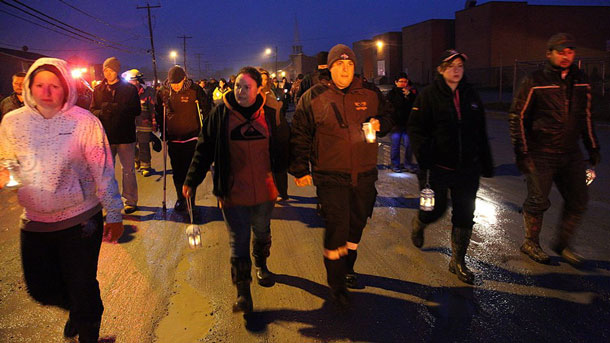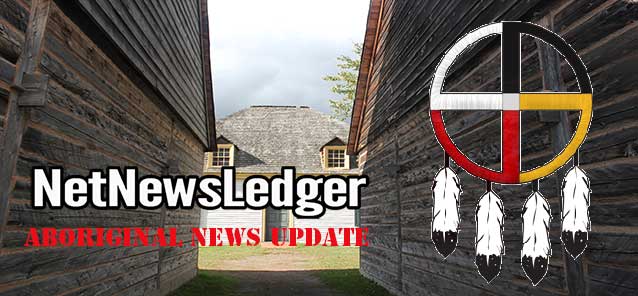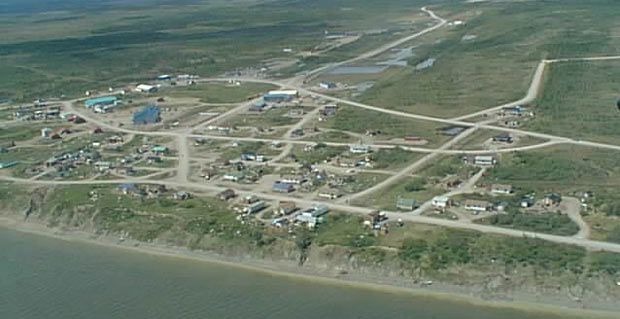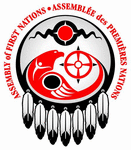 THUNDER BAY – The Assembly of First Nations coming out of the meeting Assembly of First Nations (AFN) National Chief Shawn A-in-chut Atleo, together with the AFN National Executive today released the following statement expressing the need to continue all efforts to achieve the transformative change required for First Nations in Canada:
THUNDER BAY – The Assembly of First Nations coming out of the meeting Assembly of First Nations (AFN) National Chief Shawn A-in-chut Atleo, together with the AFN National Executive today released the following statement expressing the need to continue all efforts to achieve the transformative change required for First Nations in Canada:
First Nations United For Real Change
Through decades of advocacy by First Nations leaders, we have been unwavering.
Generations of our leadership have delivered the same clear message to successive federal governments – for over a century! Governments need to understand that our resolve is absolute.
From the battle against the destructive federal government White Paper in 1969, to the struggles to win Section 35 in the constitution in 1980, to the Charlottetown debates in the 90s, to our efforts to make effective the recommendations of the Royal Commission, 16 years ago, we have never wavered.
Our voices have always been clear. Continuing attempts to undermine our resolve, to divide our people have and will always fail. Today, our work, in preparation for the meeting with the Prime Minister on January 11, 2013, stands on the shoulders of decades of Indigenous leadership.
Our demands are backed by one Supreme Court victory after another. We have the international endorsement and foundation of the United Nations Declaration on the Rights of Indigenous Peoples. Today our people are standing up from coast to coast to coast – we acknowledge and give thanks to the awareness that has been brought through ‘idle no more’ through the actions of Chief Spence, Elder Robinson and Jean Sock.
As leaders, our responsibility above all is to care for our peoples. We have heard their voices.
Governments need to understand: this will not change. We are absolute in our conviction, and in our determination to achieve our rights. We will fulfill our responsibilities to our ancestors and to our future generations. Every day that we fail to act means a loss of opportunity for our citizens. Every day wasted means another First Nations child’s life is wasted. It is time we broke through the paralysis and the endless broken promises.
It is time to act. Let us summarize, at the highest level, the demands of our people, of the First Nations:
- Fundamental transformation in our relationship with the Government of Canada, NOW.
- Real remedies and real change for our peoples NOW. And,
- Action for our most vulnerable citizens, NOW.
Let us expand on each:
- Transformation means a genuine commitment to treaty implementation and setting the fundamental rules, agenda and frameworks for their recognition and implementation.
- Real remedies means delivering fair resolution of land claims through a clear reform of the claims process through the recognition of inherent title and rights to deliver those solutions quickly. It also means an end to games about extinguishment, legislation that undermines our rights and a commitment to creating economic certainty and fairness.
- And that means a fair share of revenues from resource development.
- Action now on missing women, on safe communities, schools and drinking water means just what it says. No Canadian community would permit governments’ failure to these basic guarantees. Neither will First Nations.
These changes will require real changes in the structure of the Government of Canada’s relationship with us: changes to the Indian Act, to the Department, and to the mess of inter-departmental shared responsibilities for different files. Here is a selection of the issues, long overdue in being given serious high-level attention by government that such a new structure could push the speedy implementation of:
- All legislation must be unquestionably consistent with s.35 of the Canadian Constitution and the UNDRIP. Legislation and provisions of legislation as in C-38 and C-45 that contravene our rights must be reconsidered. We must have an environmental regulatory regime in this country that respects our rights. Legislation that tinkers around the edges of the Indian Act must stop and be replaced with support for First Nation government and nation re-building including a mechanism for our Nations to push away from the Indian Act as they determine.
- to fulfill the original relationship, Canada must put in place an ongoing process that all new bills and policies of the federal government must be in full compliance with section 35 and consistent with international human rights standards.
- only an immediate commitment to establishing a sustainable, effective and fair funding relationship respecting both our rights and responsibilities, that addresses health and safety needs without arbitrary and unfair caps, can sustain this new relationship. As successive Auditors-General have reported in sharp critiques, the existing financial structures, are unfair, inefficient, and destructive to the relationship.
Most urgently we need to address two ongoing disgraces: the treatment of our children and the treatment of the hundreds of cases of women who have gone missing from our communities. We need an immediate commitment to a “Commission of Inquiry on Violence Against Indigenous Women and Girls.” Its mandate will include a focus on the murdered and missing Indigenous women, as well as the factors that lead to increased vulnerability among Indigenous peoples.
Secondly, we need a clear commitment for all our children. This government must commit that by 2015, the lifetime of this parliament, and advancing the motion passed by consensus of parliament to support Shannen’s Dream, that every First Nations child will have access to a First Nations school that they are proud of, that respects and nurtures their languages and cultures, and is a safe and supportive place to learn.
These immediate and longer-term reforms and commitments are all within our capability and are achievable. The plans and the structures required have long been outlined by government agencies, public commissions and inquiries and by First Nations themselves. Now we must be seized by this moment to achieve them once and for all. Now there must be the political will at all levels to get this done.
– The Assembly of First Nations National Executive Committee


